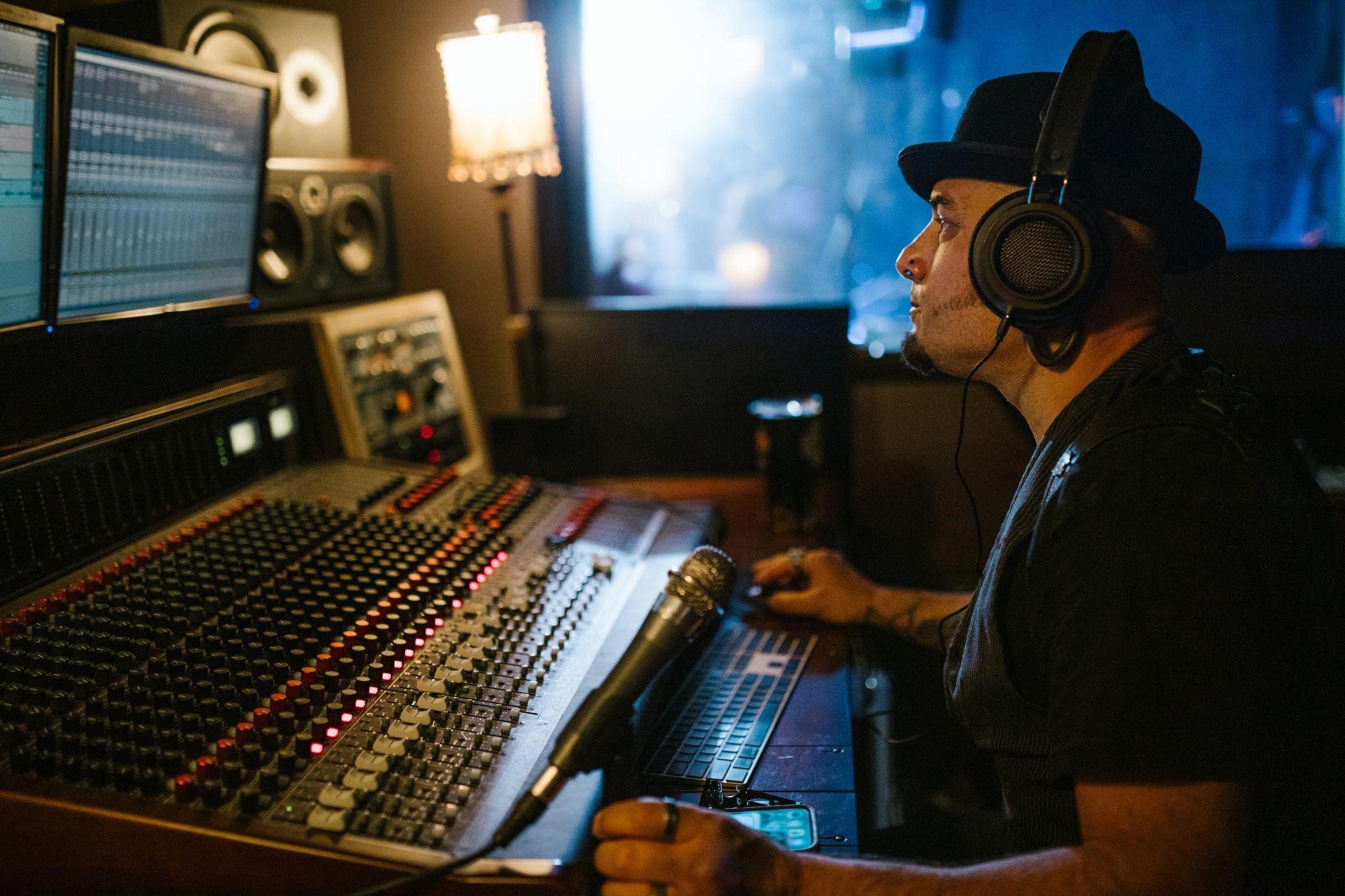
Producing music is a tough challenge, and it takes years for someone to acquire the technical and professional abilities required to do so professionally. If you want to create a profession out of making music, it makes sense to soak up quite as much product knowledge as possible.

This post will give you six helpful tips for learning music production quicker that you can start using right away. None of the ideas on this list involve any financial investment, so you may put your money on music production equipment too.
And when you plan to start producing music for yourself, either for yourself or for someone else, you need the perfect audio interface for starters.
1. List Down Concepts That Are Unknown to You
Regardless of whether you remember it or not, there was a moment when “music production talk” looked strange to you; maybe you’re still going through it. You get comfortable with music production principles and understand how they interact with each other through exposure.
Certain music production ideas are much more popular than others. Compression, reverb, and delay, for instance, are far more common than audio codecs, flutter echo, and even sample multiplexing. If you don’t make it a priority to explore seemingly complex and confusing subjects, it’s easy to overlook them.
Try to list away all the concepts you don’t have a grasp on yet and look up each one if you’re free. For example, you can use the Notes app or any note-taking app to do so. You might find yourself writing down a lot of concepts, but exercising your vocabulary should help you from here on out.
2. Binge Away on YouTube Tutorials
Many people have studied music production in school and now work full-time as music producers and audio engineers, but it doesn’t imply that you should surrender to growing and learning. I’m often watching YouTube music production lessons because they’re such a helpful tool.

You’ll never learn how to make a DIY IKEA plate reverb for $100 from a textbook, but you’ll learn it on YouTube. The nicest thing about YouTube is that it serves as a platform for anyone with a camera and a microphone to express their thoughts. A child’s bedroom may sometimes provide the most innovative production processes.
3. Help Yourself with an RSS Reader
A rich site summary (RSS) reader lets you browse all of the most current blog articles from various music-producing websites in one place. Although not every website offers an RSS feed, the majority of blogs do. Setting RSS feed categories such as “Gear Alerts,” “Sound Design,” or “Mixing and Mastering.” can be really helpful for your RSS reader construction.
Subscribing to blogs about music production may be great, but their content often is about guys posting pictures of their pets and other stuff. RSS readers let you trim down what needs to be set and leave only the content that is super relevant. If you have little to no time getting into an in-depth learning experience about music production, RSS readers can be a big help to you, since it is one of the most streamlined ways to educate yourself.
4. Collaborate with Other Artists
One of the quickest methods to learn music production is to collaborate with other musicians in person. The opportunity to ask questions and receive rapid responses is priceless. It’s nice to watch YouTube videos and read blog entries, but there’s no one to exchange information and ideas with.

If you’ve never collaborated with other artists previously, the prospect of doing so might be intimidating. When you work on your own all of the time, it’s easy to get into a production pattern; working with other artists will break up that pattern and challenge you from your comfort zone. This difficult, bumbling process accelerates your development as a producer.
It’s important that you get to work with people with similar skill sets as you have. Working in a studio with a person with fewer skills compared to you will become a lesson, rather than a collaboration. And if you work with someone whose skills are pretty much superior, your current skill level won’t do them any favors.
5. Study Every Area of Music Production
You will be a much more well-rounded record producer if you study all aspects of producing music. We suggest devoting your time to the following areas:
- Music Arrangement
- Theory
- Sound Design
- Audio Mixing
- Audio Recording
- Music Mastering
- Music Production Business
Studying to produce music, like learning how to play an instrument, is a non-linear discipline. You may study music theory for a day, record the next, and polish the following day. Even if you attend a music production class, it’s likely that you’ll learn various abilities at the same time.
When working with clients, you must have a thorough grasp of music production. A customer could provide you with a track that you can’t modify using mixing devices, for instance. They could have an audio or arrangement problem, which shows up as a “muddy” mix. You must have sufficient knowledge of sound design and arrangement to be able to inform your clients what the issue is.
6. Just Create More Music
Everybody takes a varying amount of time to learn how to make music. You will learn faster if you spend more time generating music. Remember that this only pertains to the time you spend actually producing music and studying basic music production.
A person who spends eight hours on a daily basis producing music for one year may even have more edge over someone who’s producing for three years but only allots 30 minutes of music production occasionally.
However, it is important to note that working 16 hours a day is unhealthy and should be avoided. During the week, you must make time for your family and friends, as well as your physical and mental health. The music industry is here to stay, and it will be there when you return from your beach vacation with your buddies.
Final Thoughts
Focus on pushing forward in your career and seizing any chance that will allow you to develop and grow as a producer. For every new track or record, aim high and push yourself to be better and more innovative. Maybe all we need is a little nudging to realize our full potential.